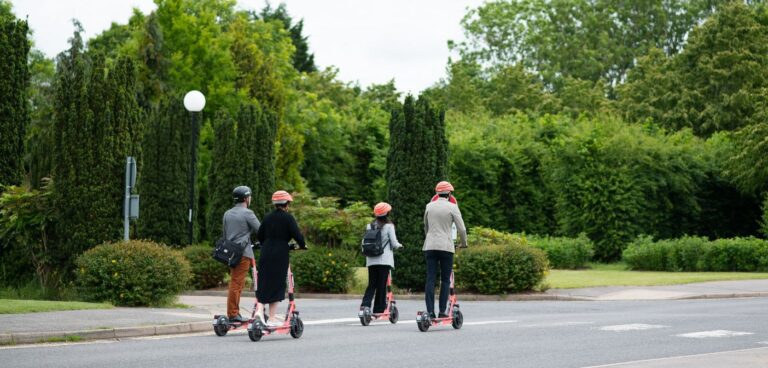Today (22 September) is World Car Free Day, an initiative by UK walking charity Living Streets established to promote traffic-free streets and increased use of micromobility around the world.
The aim of the campaign is to show how congestion and road traffic can negatively impact communities, especially within urban areas.
On average, UK road users lose 73 hours and £595 every year to congestion (representing an £8bn annual cost to the economy).
Driving the Electric Revolution Industrialisation Centres (DER-IC), in collaboration with WMG at the University of Warwick, is trying to encourage wider adoption of micromobility as a mode of transport and as an alternative to private motor vehicles.
Professor Jon King, centre lead for DER-IC Midlands, said: “Car Free Day is a great way to spotlight the continued issues that come with such high usage of motor vehicles.
“DER-IC and its partners are committed to developing solutions from the complex interplay of legislation, technology and infrastructure such as supporting advancements in micromobility.
“Micromobility supports more active travel and can be more cost-effective than car ownership. It has been seen to increase footfall to local shops and businesses, therefore helping local economies.”
According to the UK government’s National Travel Survey, 59% of car trips in 2020 were shorter than five miles (eight kilometres). The charity believes that, while electric vehicles (EVs) can be useful in reducing the environmental impact of motor traffic, they aren’t the sole solution. Instead, micromobility offers a practical travel alternative for short journeys.
Despite a recent increase in the popularity of cycling and e-bikes post-pandemic, the UK remains behind EU countries in terms of legislation regulating the use of micromobility.
However, government-approved e-scooter trials have been active in the UK since July 2020, with primary legislation changes announced in May 2022 as part of the Transport Bill. This bill was introduced to help safely legalise micromobility through the creation of the Low Speed Zero Emission Vehicles (LZEV) vehicle category.
WMG, with support from Cenex, has published ‘Micromobility: A UK Roadmap’, which proposes a legal framework for the safe design and operation of micromobility vehicles in the UK by mid 2023.
The roadmap was drafted to support the safe implementation of micromobility throughout the UK, through Parliamentary action as well as freely available vehicle training and appropriate infrastructure.
Together with the University of Warwick Estates, the University of Warwick has renovated the campus layout to be more cycling and pedestrian inclusive, including moving car parking away from the centre of campus. This was done with the intention of encouraging new mobility solutions, active travel and increased use of public transport.
The introduction of regulations and infrastructure, suggested by WMG, Cenex and DER-IC, supports the ethos of World Car Free Day and could reduce people’s reliance on automotive vehicles across the UK, thus reducing the associated emissions.





